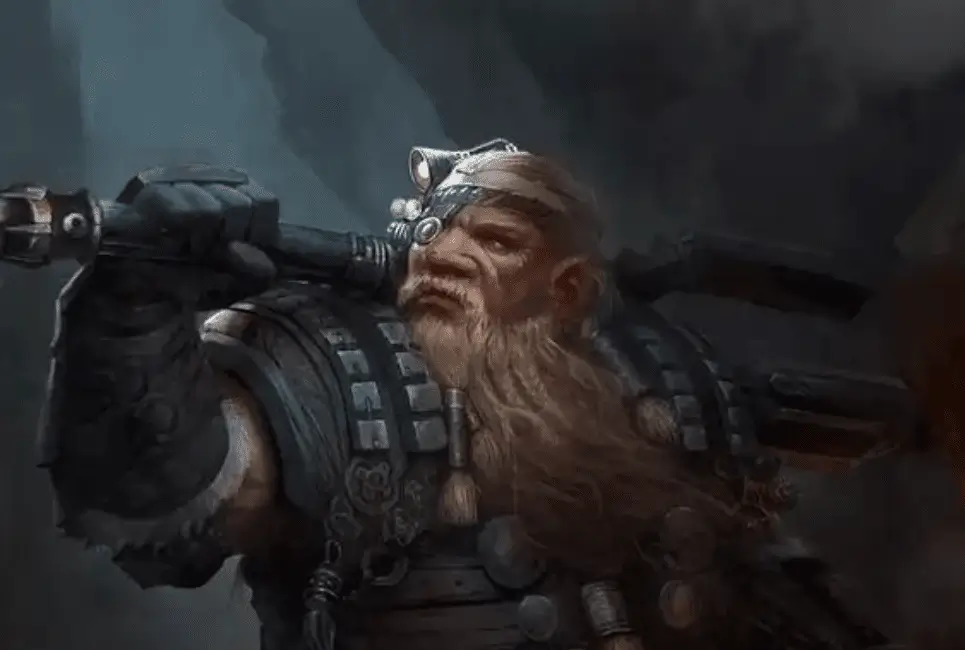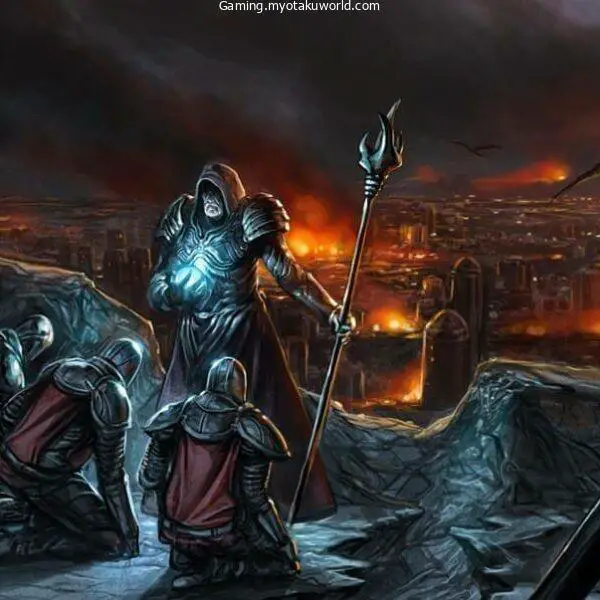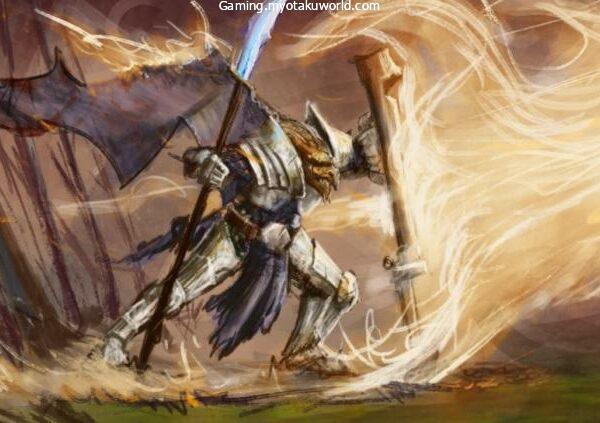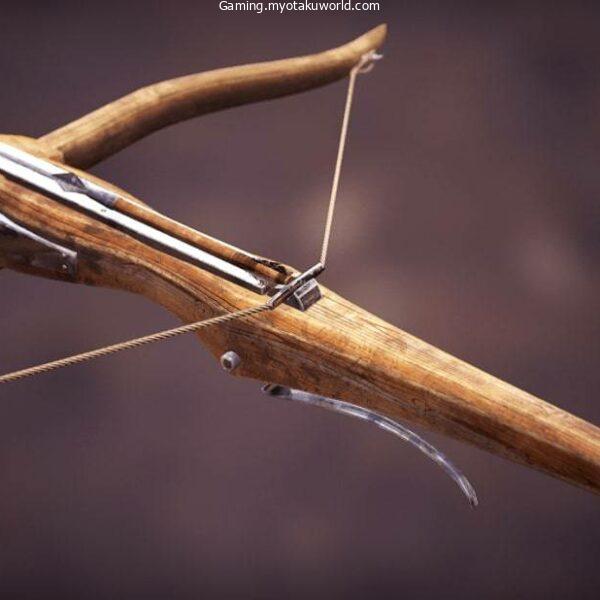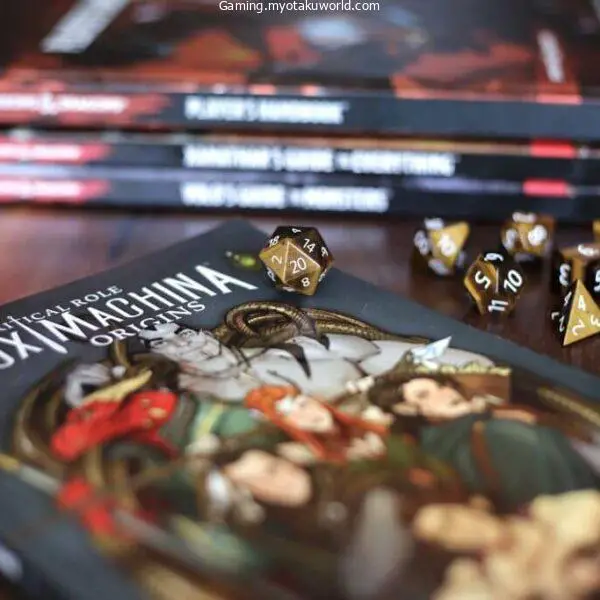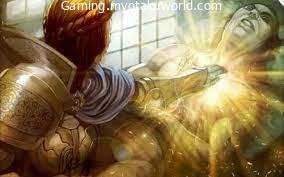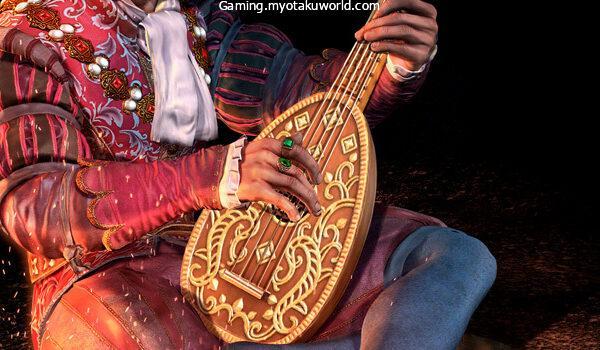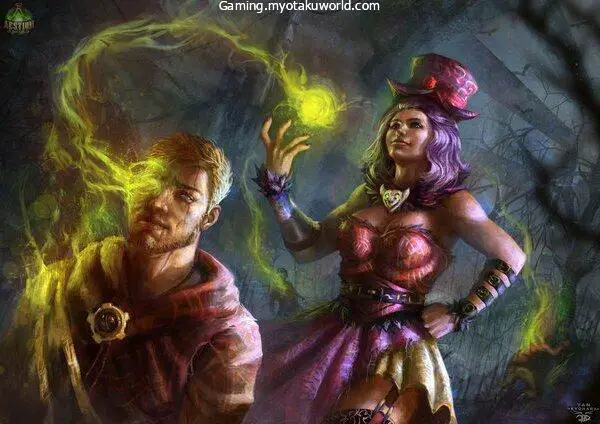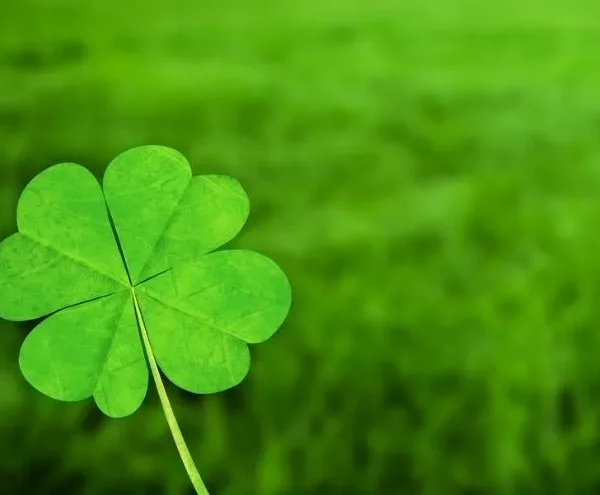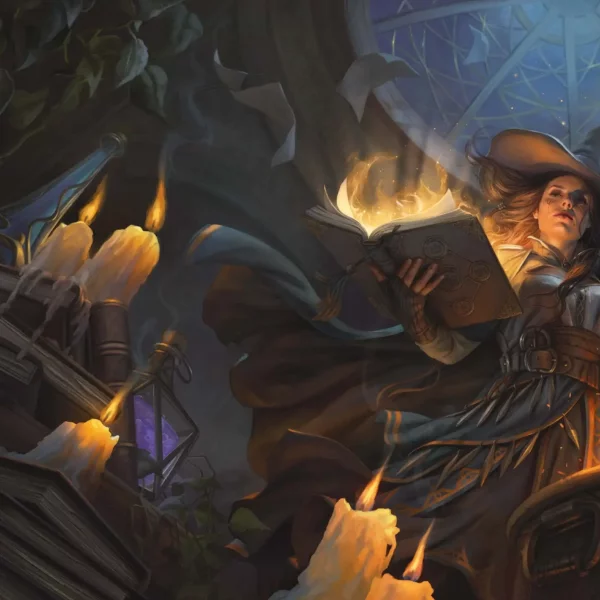A few years ago, an Outlander 5e guide helped me make the Ranger of my dreams. Outlander is a great inspiration for Rangers because both of them are very connected to nature.
The Outlander feels connected to nature because they choose to live there. Even though they live in nature, they don’t have to be simple forest dwellers who don’t even speak Common.
The Outlander has a lot more going on than meets the eye. Some Outlanders are even smarter than people who live in cities. I don’t blame them for choosing to live away from people.
Outlander Overview in DnD 5e
Dungeons and Dragons has a background called “The Outlander.” Any race or class can be an Outlander, but Druids and Rangers do it most often. The Outlander is good at Athletics, Survival, and one musical instrument.
They can also speak one more language, and they have a trait called Wanderer. Because of this, they rarely get lost or go hungry or thirsty in places they’ve been to or seen on a map.
The main idea of Outlander is that you live away from the mainstream and settle alone or with a small group of people. This can be done anywhere, in a small town or out in nature.
Outlander 5e Proficiencies
The Outlander is good at three things. Two skills and one tool can be used well.
You can’t switch between these skills unless the DM tells you to.
Without the DM’s approval, they also don’t work with other skills.
Athletics
If you are like me, you probably mix up Athletics and Acrobatics. You need good Strength to use Athletics. When you’re good at Athletics, you can climb better, avoid falling over, and jump farther.
You’re also better at swimming, pushing, and pulling. Athletics is any sport that is not gymnastics but is still a sport. Learn the difference, and don’t get mad at your DM if he tells you to roll Acrobatics when needed.
Survival
Survival is a fairly easy skill to learn. You use it to figure out what a plant, animal, or body of water is.
You can even hunt, keep an eye out, and find your way home with it.
Musical Instrument
I just finished writing a guide to D&D instruments. When you’re an Outlander, you can learn to play one of these instruments well. This lets you play it with your proficiency bonus added to Performance.
Outlander Languages
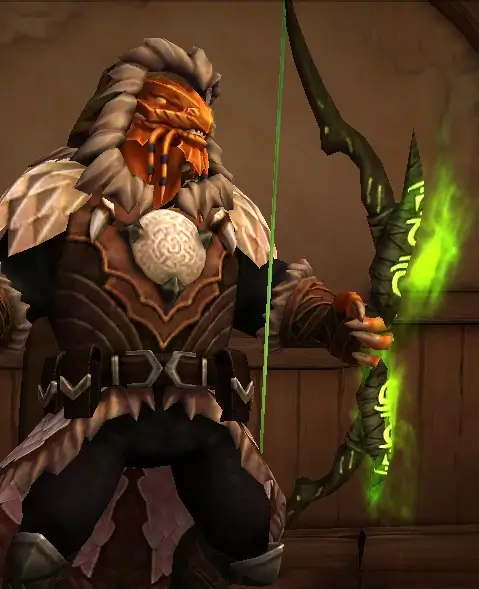
The Outlander can pick one of the basic languages to speak. If you want to use a different language, you need to talk to the DM first.
If not, you can choose a language from this list.
Note: exotic languages not included
- Common – almost everyone
- Dwarvish – Dwarves
- Elvish – Elves and other Fey
- Giant – Giants, Ogres
- Gnomish – Gnomes
- Goblin – Goblins
- Halfling – Halflings
- Orc – Orcs
Outlander Equipment
The standard equipment for the Outlander is made to fit its skills. When you choose Outlander, you should have this with you.
You might also be able to sell everything and turn the money into gold.
- A Staff – a simple wooden staff, decorated any way that you like
- A Hunting Trap – a trap for medium to small animals
- Trophy (from an animal you slew) – a hoof, head, or anything else you can think of that the DM allows
- Traveler’s Clothes – simple cloth clothing made for the standard elements
- Belt Pouch With 10gp – unless DM does random gold
Outlander Feature
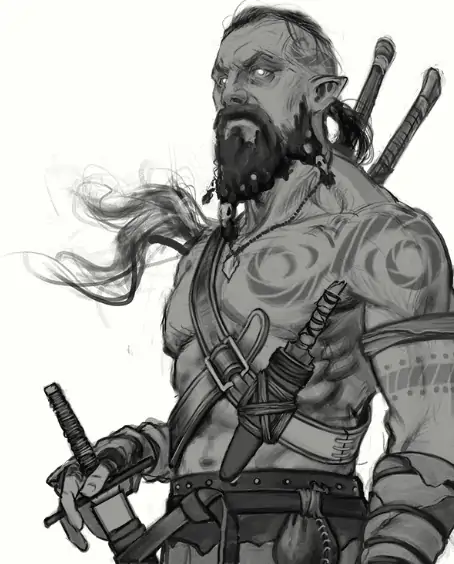
This part of Outlander is called Wanderer. The Wanderer feat makes sure that you remember maps and locations very well. You remember maps like they were written on your brain.
So you won’t get lost if you’ve been there before or seen maps of it. You know where the closest food and water is and can feed up to five people each day in the given area.
Outlander Specialty
The Outlanders are known for their job, or at least what they used to do for a living. You can either roll a die to find out what it was or pick the one that fits your story best.
Now, I know these can be hard to understand, so I’ll try to explain them from the Outlander’s point of view.
Forester (1)
The Foresters are a kind of army that lives in the woods. You are good at working with your hands when it comes to carpentry, and you know how to look out for the people you care about.
Trapper (2)
The Trapper’s job is not too complicated. You catch animals so you can skin and kill them.
You may also be good at setting traps for enemies who don’t know what’s coming, but bringing home the bacon is what you do best.
Homesteader (3)
The Homesteader is great at pulling up their roots and putting them in a new place. You are good at moving to new places and making a home anywhere because you are good at being self-sufficient.
Guide (4)
The Guide is very good at finding its way home or through any kind of terrain. You could probably get through the forest without getting hurt if you knew where the dangers were.
Exile or Outcast (5)
The Exile is not an easy decision. You can be as creative as you want with this one as long as you stay an outsider. Either you betrayed your village or you don’t believe the same things as your tribe.
Bounty Hunter (6)
A Bounty Hunter looks for people who are wanted, usually for the village. You are an expert at finding these bad guys outside of town. You’re good at finding things out and getting information.
Pilgrim (7)
The Pilgrim is like the homesteader in that way. The main difference is that they are probably going because of religion or something else just as important. You want to find a place that will take you in.
Tribal Nomad (8)
Like many Outlanders, the Tribal Nomad lives close to nature. But they will move with their people at different times of the year. They never settle in one place.
Hunter-Gatherer (9)
Even though it is called a Hunter-Gatherer, this person is more of a food-finder than a hunter. You are very good at finding food no matter where you are, whether it’s berries, grass that you can eat, or rabbits.
Tribal Marauder (10)
Most of the time, Tribal Marauders are not Good. If you choose this path, you won’t be afraid to steal food from other villages if you have to. If you’re Evil, you may even do so for fun.
Outlander Backstory Ideas
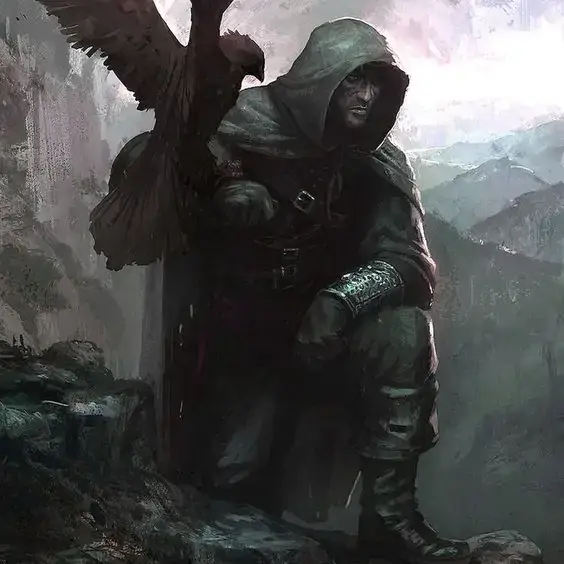
You can give an Outlander any kind of history you can think of. But if you want something that fits and is interesting, you may need to think outside the box.
If you want an idea for an Outlander backstory, it’s best to make your own with a few tips to get you started and going in the right direction.
Character Inspiration
I like to take a character from a movie, TV show, or book and use them as a model for my own character. I’ve even based a character on a Magic: The Gathering card, and that worked out well.
In the end, the character is never the same as when the story began. This is good because it means that you had a hand in making it, so it’s still unique to you.
Specialty as a Base
If you choose a specialty for an Outlander before you choose a backstory, you can use that specialty as fuel. For instance, if you are an Exile, you can easily use that as the basis for your backstory.
Let’s say you grew up in a strict, religious tribe that lived far from the city. There were arranged marriages, and when it was your turn to get married, you ran away to find true love.
Choose a Biome
I think of a forest when I think of Outlander. But you can pick any type of environment you want. You need to make sure it’s possible in the setting of your campaign. If it is, you’re good to go.
Choose the desert for a change of pace or the snowy mountains for a twist. You can get a lot of ideas from your specialty and character, or you can just pick your favorite biome.
Family Ties
In many Outlander backstories, family is very important. But for some people, their family is the worst thing in the world. You might notice that backstories always talk about family, no matter what the background is.
But for the Outlander, family is usually where everything starts. They probably weren’t born in the forest and raised by wolves, but even if they were, the wolves would still be their family.
Class Objective
Your backstory could be changed by the class you choose. An Outlander might not have the same specialty or goal as a Rogue or a Cleric. The class objective tells you why you are the Outlander class that you are.
You might already know why you’re an Outlander, but it might be easier to write your backstory if you could find out why you’re the class you are. Think about why you picked that class.
Outlander Characteristic Ideas
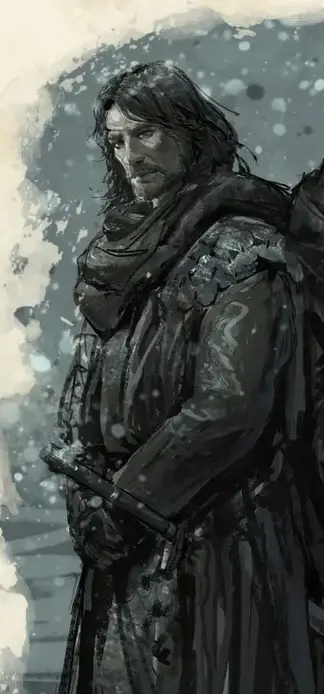
If you want to roll for a random but common trait, check out the Player’s Handbook. But if you want to know my original traits, ideals, bonds, and flaws, check out my custom Outlander Characteristic Charts.
Personality Traits
| 1d8 | Personality Trait |
| 1 | I can’t stop exploring new places |
| 2 | I value the life of animals above others |
| 3 | I have no care for wealth |
| 4 | I salvage everything – even if others call it trash |
| 5 | I try to make friends with every living thing |
| 6 | I try to make every day count |
| 7 | I want to forget the past |
| 8 | I rarely speak |
Ideals
| 1d8 | Ideal |
| 1 | Love. Family is all that matters, and I will return to them one day. (Good) |
| 2 | Nature. We will die, but nature shall live forever. (Neutral) |
| 3 | Faith. I will give up everything for my god. (Lawful) |
| 4 | Independence. Life on the road is the only life worth living. (Chaotic) |
| 5 | Logic. A reality check is not the opposite of kindness. |
| 6 | Power. Society doesn’t deserve the freedom they’ve been given. (Evil) |
| 7 | Change. Each day is a day for change, evolution, and growth. |
| 8 | Respect. My life is mine, and yours is yours. |
Bonds
| 1d8 | Bond |
| 1 | I leave every leaf unturned and untouched unless I need it; nature is an extension of me. |
| 2 | Everyone knows my tribe, and I must carry on their legacy in the world. |
| 3 | I owe my life to the Hermit who raised me after he found me as a baby. |
| 4 | I want to be left alone in the wilderness to play music and eat berries until I die. |
| 5 | I must reproduce and create my own tribe, so I search for love. |
| 6 | I hold everyone who ever was kind to me dear and will repay them. |
| 7 | I believe I was a different species in my previous life and I still feel connected to it. |
| 8 | I am connected to the spirit world and can only feel it in nature. |
Flaws
| 1d8 | Flaw |
| 1 | I hate walking |
| 2 | I have no manners |
| 3 | I am addicted to alcohol |
| 4 | I can’t handle insults |
| 5 | I always keep way too much food on me |
| 6 | I laugh at inappropriate times |
| 7 | I will steal to feed my tribe |
| 8 | I am a penny-pincher |
FAQs
What is an Outlander 5e Staff For?
If your class doesn’t use magic, you can use the staff to walk, fight, or do anything else. But if you are a magic class, you can use it as an arcane focus to cast spells.
Does an Outlander Start Out With Much Gold?
The Outlander starts with 10gp in a small pouch, which is pretty normal and what most backgrounds start with. The Noble starts with 25gp, which is the most gold.
Is Outlander a Good Background?
From my point of view, the background of Outlander is good. I love movies with backgrounds that are based on nature, and the Outlander is just that. They have the benefits that come with being close to nature.
